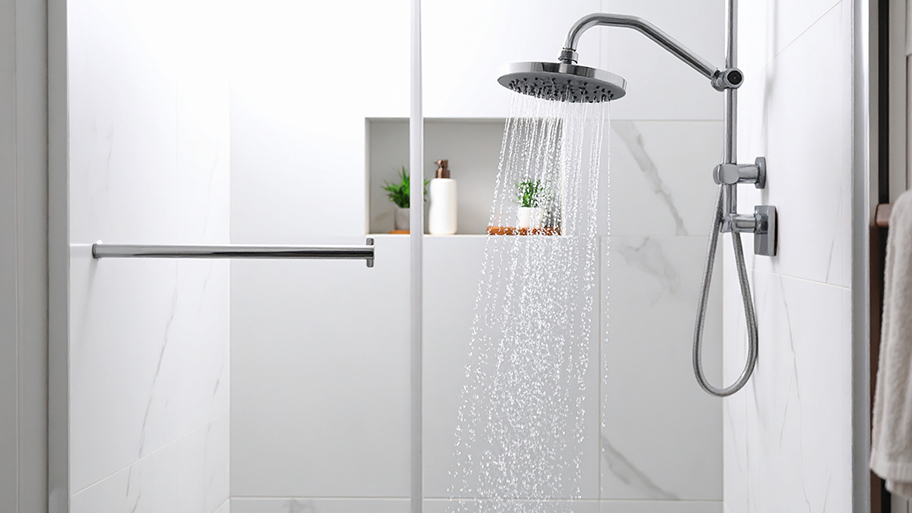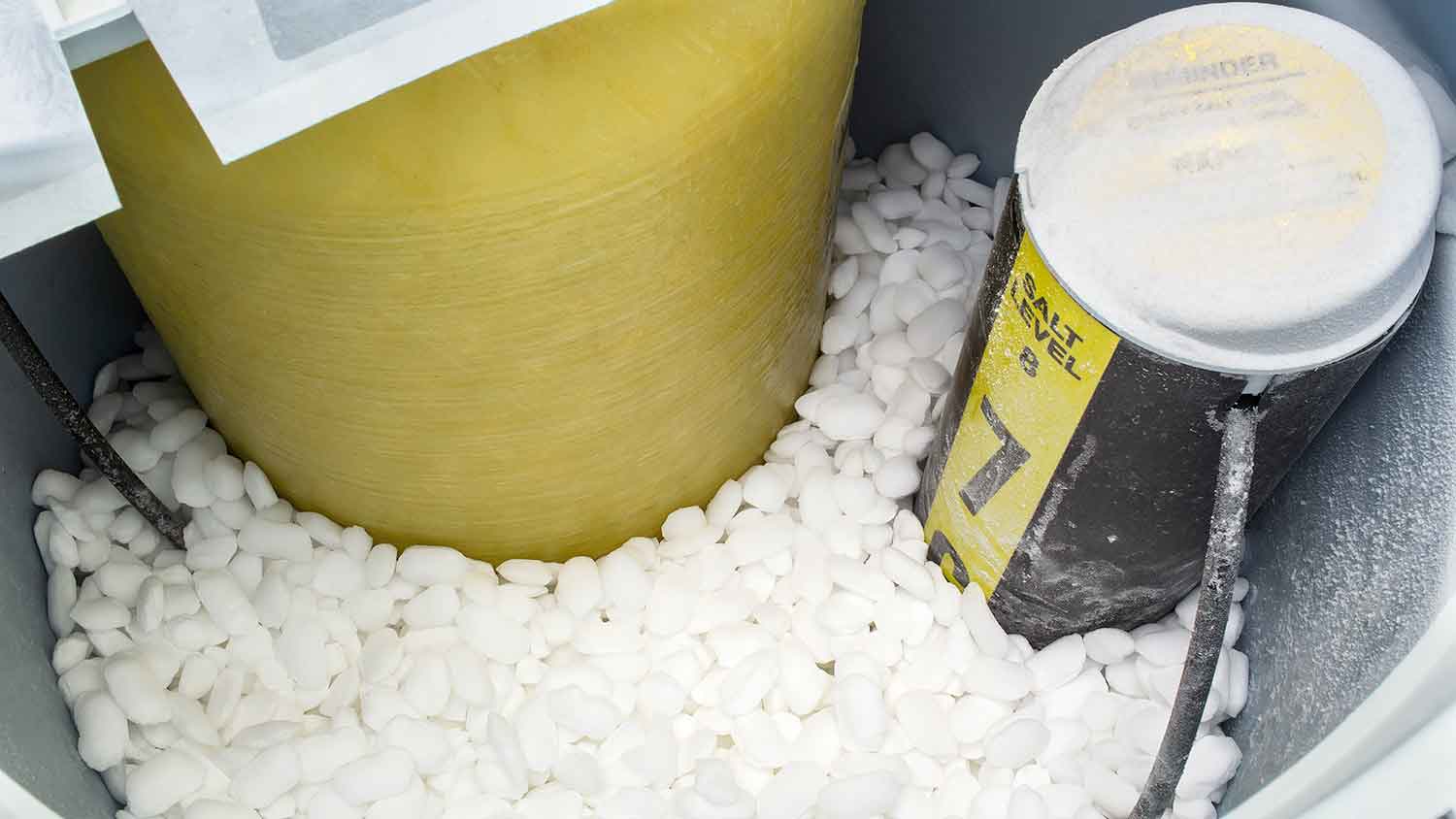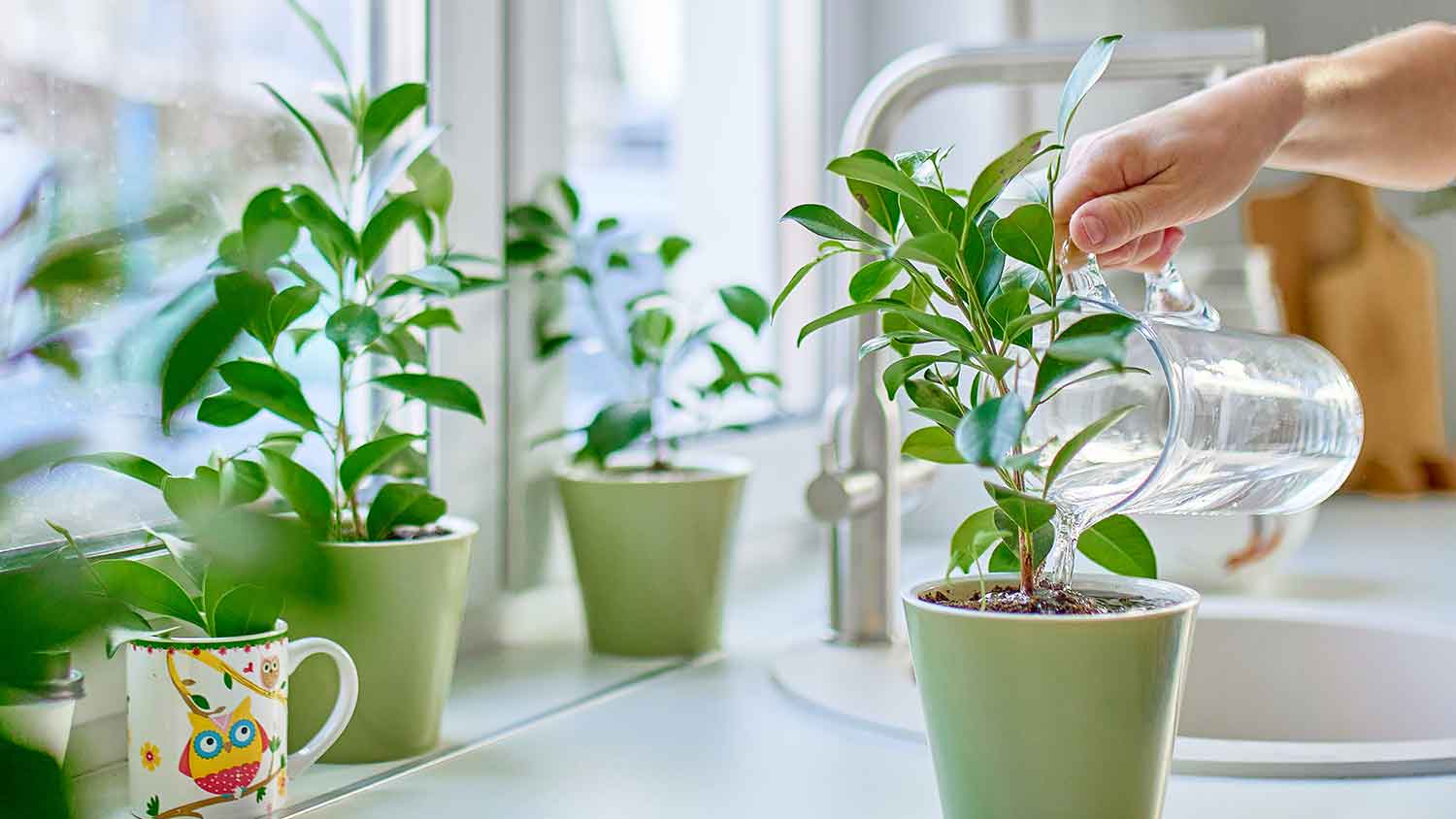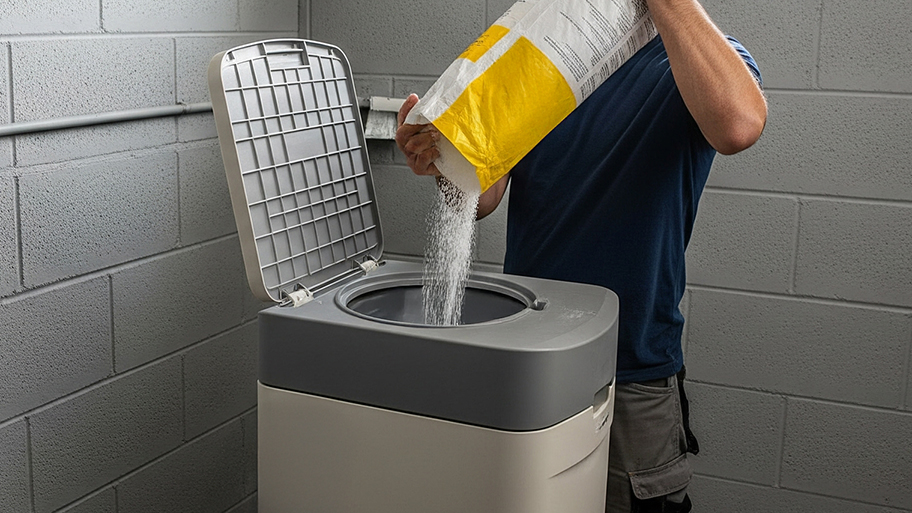
Water softener repair costs can add up, but they’re almost always worthwhile. Use this guide to see what your project is going to cost before you get started.
Are you team potassium, or do you support sodium?


You’ll need 25% more potassium chloride than sodium chloride to soften water.
Health conditions, like hyperkalemia or hypertension, may require you to avoid certain salts in your water softener.
Sodium chloride costs $5 to $10 per 40-pound bag.
Potassium chloride costs $50 to $70 per 40-pound bag.
Water softener salts play an important role in delivering water to your home that won’t leave behind pesky limescale buildup. But when you head to the store for a salt refill, you’ll notice two major types on the shelves: potassium chloride and sodium chloride. Which one are you supposed to use? Find out the major differences between potassium chloride versus sodium chloride water softener salts to determine which is right for your household.
Both types of water softener salts work in the same way, but the biggest differences between the two are their costs, performance, and health impacts. Potassium chloride is not quite as efficient as sodium chloride and costs more, but it’s a good option for people trying to limit their sodium intake.
| Type of Difference | Potassium Chloride | Sodium Chloride |
|---|---|---|
| Performance | Needs 25% more salt | More effective with less |
| Taste | Salty, metallic | Salty |
| Sourcing | Extract | Extract, evaporation |
| Sustainability | More sustainable | Less sustainable |
| Health | Hyperkalemia risks | Hypertension risks |
| Cost (per 40-lb bag) | $50–$70 | $5–$10 |

Although a water softener can use potassium chloride or sodium chloride to soften water, you’ll find that you may need to use about 25% more potassium chloride to soften the same amount of water as sodium chloride.
Regardless of what salt you use, if your water softener isn’t effectively softening water and leaves behind limescale on faucets and hard water stains on your dishes, hire a local water softener pro to inspect your unit and make any necessary repairs or replacements.
Sodium chloride can leave behind a slightly salty taste in the softened water when compared to hard water. Similarly, water softened with potassium chloride may also have a somewhat saline taste, but it can also have a mild metallic taste.
Water softener salt crystals or pellets, whether they’re potassium chloride or sodium chloride, are most often sourced through extraction. For sodium chloride, you can also find solar salt, which is a high-quality water softener salt made by using solar power to dry out seawater for the salt it leaves behind. This is one of the purest types of water softener salts, with 99% purity.

Potassium chloride offers some eco-friendly credentials over sodium chloride. That’s because potassium chloride can be beneficial to plants, making any wastewater more useful and slightly more sustainable. However, because solar sodium chloride salts can be produced using solar power, they may be a better choice for eco-minded homeowners.
If you have any health concerns, you should talk with your doctor about how your softened water could impact those conditions. Potassium chloride water softener salt is popular for people with hypertensive disorders or other conditions that require restricted sodium intake.
But that doesn’t mean potassium chloride is right for everyone. Potassium is essential for humans, but some people can have too much potassium in the blood, a condition known as hyperkalemia. People with kidney disease, diabetes, or other health concerns may need to avoid using potassium chloride for their water softeners. Again, talk to your doctor before deciding on the best product for your water softener.
For budget-conscious homeowners, there is a major difference in costs between potassium chloride versus sodium chloride water softener salts. Sodium chloride products cost $5 to $10 per 40-pound bag, while potassium chloride salts cost $50 to $70 per 40-pound bag. Plus, keep in mind that you’ll need to use more potassium chloride.
From average costs to expert advice, get all the answers you need to get your job done.

Water softener repair costs can add up, but they’re almost always worthwhile. Use this guide to see what your project is going to cost before you get started.

Wondering about water treatment system costs? Learn average prices, key cost factors, and ways to save on installation and maintenance for your home.

How much a water softener costs depends on your home’s size, and the system’s type and capacity. Our expert guide explores all the price factors.

There are many water softener benefits, including better water flow, lower energy and maintenance costs, cleaner dishes, and healthier skin and hair.

Descalers and softeners both prevent scale buildup—but in different ways. Not sure which one you need? Here’s a rundown of descalers versus water softeners.

Want to make sure you and your family have perfectly clean drinking water? Installing a whole-house water filter might be your best option.